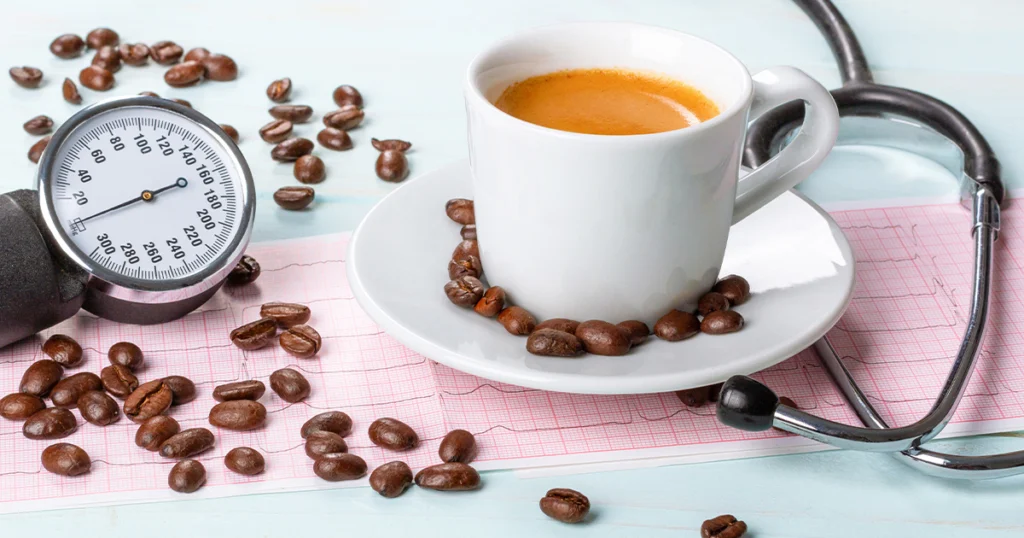Coffee is one of the most widely consumed beverages worldwide, and many people wonder, does drinking coffee raise blood pressure? While moderate consumption is generally safe for most healthy adults, those with existing heart conditions or high blood pressure should be cautious. Even small increases in blood pressure can be significant for sensitive individuals. If extreme spikes occur, seeking immediate care at Harlingen emergency room may be necessary.
Understanding your own response to coffee is important, as effects can vary from person to person. Factors like age, overall health, and lifestyle can influence how your body reacts. Monitoring your blood pressure regularly helps identify any concerning changes. Being aware and proactive ensures coffee consumption remains safe without risking cardiovascular health.
How Caffeine Affects Blood Pressure
Caffeine in coffee can temporarily raise blood pressure by affecting the nervous system and cardiovascular function. It may increase heart rate, tighten blood vessels, and cause a short-term rise in pressure. Most healthy adults experience a mild and temporary effect, while people with hypertension or sensitivity may notice stronger changes. Moderation and awareness of personal tolerance help maintain safe consumption.
- Stimulation of the nervous system: Caffeine triggers the release of adrenaline, which increases heart rate.
- Vasoconstriction: Blood vessels tighten, causing a temporary rise in blood pressure.
Increased cardiac output: The heart pumps more blood per minute, elevating pressure. - Hormonal response: Caffeine can increase renin release, affecting fluid balance and pressure.
- Temporary effect: The spike usually peaks within 30–60 minutes and gradually returns to baseline.
Does Drinking Coffee Raise Your Blood Pressure?
Many people wonder, does drinking coffee raise your blood pressure? For most healthy adults, moderate coffee intake can cause a temporary increase in blood pressure due to caffeine stimulating the nervous system. The effect varies between individuals, with some noticing it more than others. Paying attention to how your body responds can help you enjoy coffee while keeping your cardiovascular health in check.
What to Know
- Coffee can cause a short-term spike in blood pressure after consumption.
- Regular drinkers may experience less effect due to caffeine tolerance.
- The rise is usually mild and temporary in healthy individuals.
- People with hypertension should limit caffeine intake.
- Monitoring blood pressure after coffee can help assess personal sensitivity.
- The link between coffee and blood pressure depends on individual sensitivity and caffeine tolerance.
Should You Limit Coffee Intake?
Caffeine is best consumed in moderation to avoid potential health issues. Healthy adults can generally have up to 400 mg/day, equivalent to around 4–5 cups of coffee. For most people with normal blood pressure, this amount is considered safe. Those with elevated blood pressure should consult a healthcare professional to determine an appropriate limit.
- Pay attention to how caffeine affects your energy and heart rate.
- Avoid consuming coffee close to bedtime to prevent insomnia.
- Balance caffeine with proper hydration and nutritious meals.
- Remember other sources of caffeine, such as tea, chocolate, and soft drinks.
Understanding how coffee and blood pressure interact can help determine your safe caffeine limits, especially if you have hypertension.
Can Your BP Build a Coffee Tolerance?
Yes, your body can develop a tolerance to caffeine, so regular coffee drinkers may notice smaller increases in blood pressure compared to occasional drinkers. However, individual responses vary based on genetics, overall health, and daily coffee intake. Even if you don’t feel jittery, caffeine can still elevate your heart rate and blood pressure temporarily. Over time, repeated spikes can strain the cardiovascular system, making it important to monitor your response. Being mindful of your limits helps maintain a healthier balance between enjoyment and heart health.
When to See a Doctor
It’s important to consult a doctor if you notice persistent or unusual changes in your blood pressure after drinking coffee. Early medical guidance can help prevent complications and identify any underlying conditions. Regular check-ups also ensure that caffeine consumption stays within safe limits. Don’t ignore warning signs or assume tolerance means safety. Professional evaluation helps tailor recommendations to your individual health needs.
- Blood pressure remains high even after reducing coffee intake.
- Frequent headaches, dizziness, or rapid heartbeat after drinking coffee.
- New or worsening symptoms of anxiety or restlessness.
- Difficulty sleeping or feeling jittery despite cutting back on caffeine.
- A family history of hypertension or heart disease.
Immediate Help for Blood Pressure Spikes from Coffee
While moderate coffee consumption is generally safe for most people, it can temporarily raise blood pressure, especially in individuals who are more sensitive to caffeine. Does drinking coffee raise blood pressure? The answer depends on your body’s tolerance and coffee intake habits. Symptoms such as dizziness, headaches, palpitations, or consistently high blood pressure readings should be monitored closely. Identifying how your body naturally reacts to coffee helps in managing potential risks. Regular tracking of your readings can reveal patterns linked to your caffeine use.
At the Exceptional Emergency Center, patients have access to emergency care, advanced monitoring, and personalized guidance for better blood pressure control. The team focuses on helping you balance your caffeine habits with your overall cardiovascular health. Through accurate assessment and tailored advice, you can enjoy your daily coffee while minimizing risks. Taking proactive steps today supports long-term heart wellness and peace of mind.

